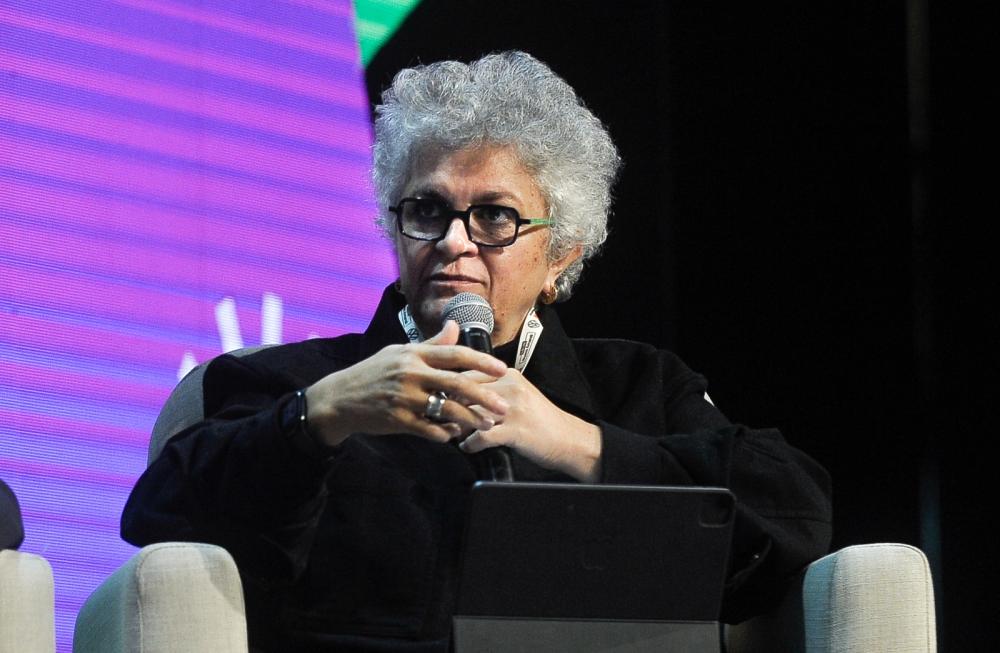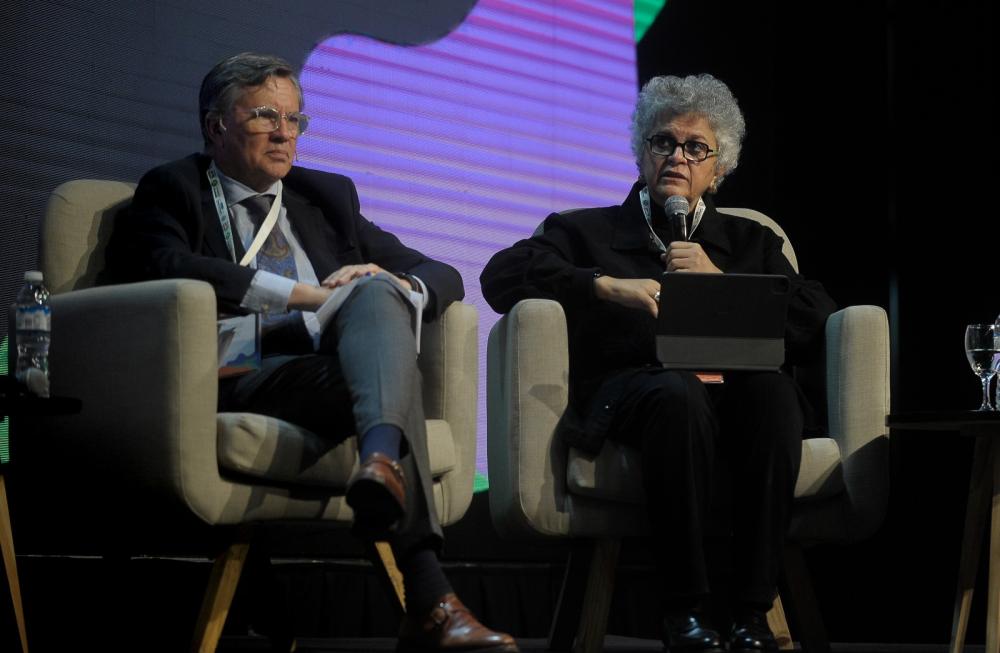"Just as we reject climate denialism, we must reject the denial of agriculture and its role in decarbonizing the global economy," said the former Minister of Environment of Brazil and advisor to IICA at the AAPRESID Congress

Buenos Aires, 12 August 2024 (IICA) – "Just as we must reject climate change denialism, we must also reject the denial of agriculture and its role in increasing the decarbonization of the global economy, which is not based on scientific evidence and blames it for all problems," said Izabella Teixeira, former Minister of the Environment of Brazil and Special Advisor to the Inter-American Institute for Cooperation on Agriculture (IICA) for the G20 and COP29 and COP30.
Teixeira was one of the most anticipated speakers at the opening of the Congress of the Argentine Association of No-till farmers (AAPRESID), which brought together producers, academics, businesspeople, and local and international figures in Buenos Aires, seeking solutions and projects for more sustainable agriculture. About 7,500 people attended.
Teixeira is the former Minister of Environment and Climate Change of Brazil and was the chief negotiator of her country's delegation at COP 21, where the historic Paris Agreement was adopted, and where the world committed to reducing greenhouse gas emissions.
"Today, there is a dilemma between ambition, vision, and narratives that reconcile the challenges of food security, energy security, and the path to global economic decarbonization. Brazil is an example of the importance of agriculture for food and energy security, as well as environmental security. If we fight climate change denialists, we cannot accept those who put pressure on agriculture as if it were the source of all problems. Although agriculture has its challenges, we must understand that we cannot change the economies of developing countries without agriculture. And the transformations that need to be made should only be based on science and reliable data," Teixeira warned.
A debate beyond the climate issue
Izabella Teixeira spoke on the panel "The Future of Agri-Food Systems of the Americas," which was part of a special section designed by AAPRESID along with IICA, as part of their strategic alliance aimed at promoting the dissemination of best practices and the transfer of technologies that enable soil and environmental regeneration and mitigation and adaptation to climate change.
The expert, a world-renowned biologist, explained that today the debate and negotiations around climate change go beyond the environmental issue, and thus are not confined to COPs or the United Nations, but are a fundamental issue for development, involving geopolitics and international trade, and are constitutive of power relations.
"The discussion has gained global strategic importance," she explained; "it's about how we will drive development and who will pay for the transformations. And this is no longer discussed only within the framework of the United Nations Framework Convention on Climate Change but also outside it: in the G20, G7, BRICS, or the OECD," Teixeira explained.
"We need to pay attention to science to look at the data and understand the metrics on climate change, so that society can have a correct dimension of the problem and know how agriculture addresses it with its technologies to adapt and emit fewer greenhouse gases," she pointed out.

In this regard, she highlighted the interests behind accusations against agriculture and its role as a solution provider: "We must understand agriculture's role in food and nutritional security as well as in energy security and social peace. Today there is agriculture that produces energy and adds permanent value."
Teixeira criticized the so-called green protectionism, which imposes unjustified barriers on international agricultural trade with environmental motivations. However, she warned that there are new consumer demands that will lead to increased costs for producers.
"We must move away from discourses that deny the climate crisis," she warned, "and we must underscore the importance of agriculture as a solution provider. Today, when one thinks of food and nutritional security, it is linked to energy security. The agricultural agenda announces the future."
Teixeira also highlighted the role of Latin America and the Caribbean as a continent of peace, which is also a reliable supplier of agricultural products to the world.
"We are a region of peace. That is an important value. We are societies that can build a better future. For that, we need an alliance with the private sector, and the private sector needs to have a political role," she concluded.
More information:
Institutional Communication Division.
comunicacion.institucional@iica.int